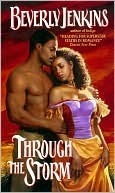More on this book
Community
Kindle Notes & Highlights
“Araminta is what my mama named me. Owner named me something else. The good Lord named me Moses. And you are?”
Although the woman had originally introduced herself as Araminta, Sable learned that the rest of the world knew her as Harriet Tubman and that she was very famous. It seemed Mrs. Tubman stole slaves. Many slaves.
You can’t make a man love you, so—if he could do without me, I could sure do without him.
Raimond felt as if he’d just had roots worked on him. He swore he saw his future in her eyes.
The Firsts had sacrificed much to transform America into the nation it had become; for their labor and blood they were owed something.
Land ownership coupled with an education were the chief goals of a free man, and thousands were working toward those ends.
On January 31, 1865, the House of Representatives passed the unprecedented Thirteenth Amendment. Unlike the Emancipation Proclamation of 1863, which abolished slavery only in those states at war with the Union, the new amendment outlawed slavery everywhere in the United States. The next day, February 1, Senator Charles Sumner sponsored a Black Boston lawyer named John Rock for the right to practice law before the Supreme Court.
Dred Scott v. Sanders, the Court had denied that Blacks were even citizens.
The edict essentially returned all confiscated land to its original owners. As a consequence, all land deeds held by Black freedmen were no longer valid.
“More’s the pity. I believe you people would have been served better by staying put. You’re never going to be treated equal because you weren’t created equal. Every race has a place and you’re trying to rise above yours, but we won’t let you. We’re going to tell our children and they’re going to tell their children and their grandchildren and we’re going to follow you down through time until you accept it.” “We’ll never be slaves again, Sally Ann, not without bathing this country in blood.”


